It is not every day that one gets to hear the wisdom of someone who managed Wall Street money. Mr. Prashant Khemka is the Founder of White Oak Capital currently managing an AUM of US $ 1.7 Billion investing in Indian equities. PMSBazaar hosted the market maven's webinar recently, where Khemka shares his insights and takeaways.

It is not every day that one gets to hear the wisdom of someone who managed Wall Street money. Meet the affable and straightforward Prashant Khemka, the founder of White Oak Capital Management. The veteran fund manager of Goldman Sachs who dabbled in Indian and emerging market equities is a fountainhead of ideas. Over the last 22 years, right from the beginning of his professional career at SSGA in Boston to now as the captain of a 12-member team that seeks to deliver the best investing experience for PMS investors in India, Khemka has seen different market cycles across geographies. This gives a vantage point like no other. At White Oak, his team currently managing an AUM of US $ 1.7 Billion investing in Indian equities and has out-performed the market since inception about two and a half years ago. PMSBazaar hosted the market maven's webinar recently where Khemka shares his insights and takeaways.
Victory over Virus
The main talk point for markets, both in India and globally, is corona-virus. Largely helpless against this invisible enemy which is taking tens and thousands of human lives across the world, chaos reigns supreme. Khemka breaks it down to 3 plausible scenarios.
In the best case scenario where a cure becomes available in the next few months and the medicine reduces mortality by more than 90%, the equity connoisseur expects everything to normalize very quickly. "There will be a sharp jump in markets. Markets globally will revisit old highs," says Khemka.
In the worst case scenario where no medicine or no vaccine is ever developed, the virus would end up touching everyone in the world, more or less. Khemka, like many others, pins hope on herd immunity to be developed. "This could happen at a different pace in different countries and regions. Based on my limited understanding, a 12-24 month time period seems reasonable for herd immunity to set in. Human cost would be sizable in such a scenario. Obviously, you can always paint a worse than worst case scenario. There is no end to it," Khemka opines.
The base case scenario, according to him, is where no medicine is invented, but a vaccine becomes available and widely administered by the end of next year. From an economic perspective, the base case and worst case scenarios are hardly different, Khemka admits. "The difference would be in the human cost. This year Indian economy can still grow at low single digits, if medicine comes soon. FY 21 is a very disturbed year. FY 22 could see 5-7% GDP growth," he says. In both the worst and base case scenarios, corporate earnings will be hit. On a two-year basis, corporate earnings will appear flat.
Sector Succour
Prashant Khemka comes from the camp of bottom-up investing. While sector talk is all fine, he warns investors that there is no value-add in taking sectoral views. Still, it is important to understand that some sectors will structurally benefit despite pandemic. "Telecommunications, IT services (more export oriented and developed markets are likely to get back sooner), pharmaceuticals (better regulatory environment), some specialty chemical companies will do well (as global companies diversify away from China). On the other hand, financials, automobiles, consumer discretionary, industrial, and real estate will face demand challenges. Staples are less affected," Khemka says.
Of course, in tough times, corporations, which have stronger balance sheets, will tend to hold up better. Industry leaders will tend to do better than marginal players. This is because a stronger balance sheet is due to stronger positioning, he says. Harping upon his sector views, Khemka asks investors to take the advice with a pinch of realism. "Financials, a darling of the market, is badly beaten down. But not all financials are the same. Those which survive the next 2 years will thrive for two decades....In financials on one end you have microfinance lenders lending unsecured small-ticket loans while on the other hand there are gold finance companies that have gold as collateral. So, all financials are not the same," Khemka makes his point on why top-down sector picking works sub-optimally.
White Oak Wisdom
Outsized returns are earned over time by investing in great business at attractive valuations - that's the philosophy Prashant and his team work with. Cognizant that everybody says the same, Khemka says the devil lies in details, in execution. The aim at White Oak is to deliver 10% point out-performance over the long term, is how Khemka described 'outsized returns'.
So, how is White Oak being different? There are a few simple rules. One, a good company needs to cover its cost of capital. "If you can't cover your cost of capital, then you can't have sustainable cash flow generation. The higher is the return on incremental capital compared to the cost of capital, higher is the cash flow generation," reveals Khemka, an MBA in Finance from Vanderbilt University (US) where he received the Matt Wigginton Leadership Award for outstanding performance.
Along with superior returns, scalability in a business is important. The White Oak founder takes the example of private sector banks. "They have grown compounded 20% as an industry. We are talking about scalability on top of superior returns. Many banks grow at 20% but then they go bust due to lack of superior returns," Khemka opines. And when you see potential for returns and scalability, you need a management that can execute it long term value creation. There is a lot of focus on management quality at White Oak Capital. Assessing the execution DNA is critical, avers Khemka. But nothing is as important as governance. "It may be a great business but for controlling shareholders," he quips.
Most sophisticated investors aim to buy a business at a price substantially below fair value. But how does White Oak figure out value? Khemka's answer was quite shocking in this regard. "We do not look at PE multiple, EBITDA multiple. At best, PE multiple is useless in our scheme of things. At worst, they are meaningless and harmful. We look at our proprietary CLEIR (Capital Light Excess Investment Return) framework. This allows us to do actual apples to apples comparison, because we can normalize for capital structure and capital intensity," said the award-winning investment professional.
Using the example of Nestle stock, which 2 years ago would seem to be trading at 125% premium to Sensex PE, Khemka says his team found there was value. White Oak's proprietary valuation framework showed 33% premium, which is a small price to pay for such a business, Khemka argued.
Not a Fan of PSUs, Debt and Stimulus
During the question and answer session segment in the PMSBazaar webinar, Khemka used a straight bat to handle the bouncers, googlies and slower one coming at him.
When asked about PSU stocks, Khemka recalled his global experience, including in emerging markets, to tell the audience that he has seen the controlling shareholder and management in government owned companies not being aligned with minority shareholders. Though he admits a beaten-down valuation in such companies may make them seem attractive at present, they do not fit in White Oak's sustainable investing framework.
One of the questions to the equity aficionado was about investing in debt. Khemka revealed that barring a few instances when money lay in his bank account for a short period of time, he has been a 100% equity fan throughout. "Investing in debt is guaranteed real loss. This is because adjusted for inflation, you do not make money," Khemka says.
Quizzed on the need for economic stimulus, Khemka revealed his team is not a big fan of stimulus. While the word stimulus sounds nice, the investing expert says such doles put pressure on the handful of taxpayers. "Yes, there is a need for basic sustenance support for the poorest of the poor. I would argue that reform stimulus, like we had seen in the early 90's, will have a bigger impact than hand-outs," Khemka signs off.
Those who missed the opportunity to hear from the Veteran directly can listen to the entire session through the appended link;
Recent Blogs

January Rout, Extreme Dispersion: PMS Returns Swing From Losses to Gains
Benchmark falls deepened losses, but multi-asset and debt cushioned portfolios meaningfully
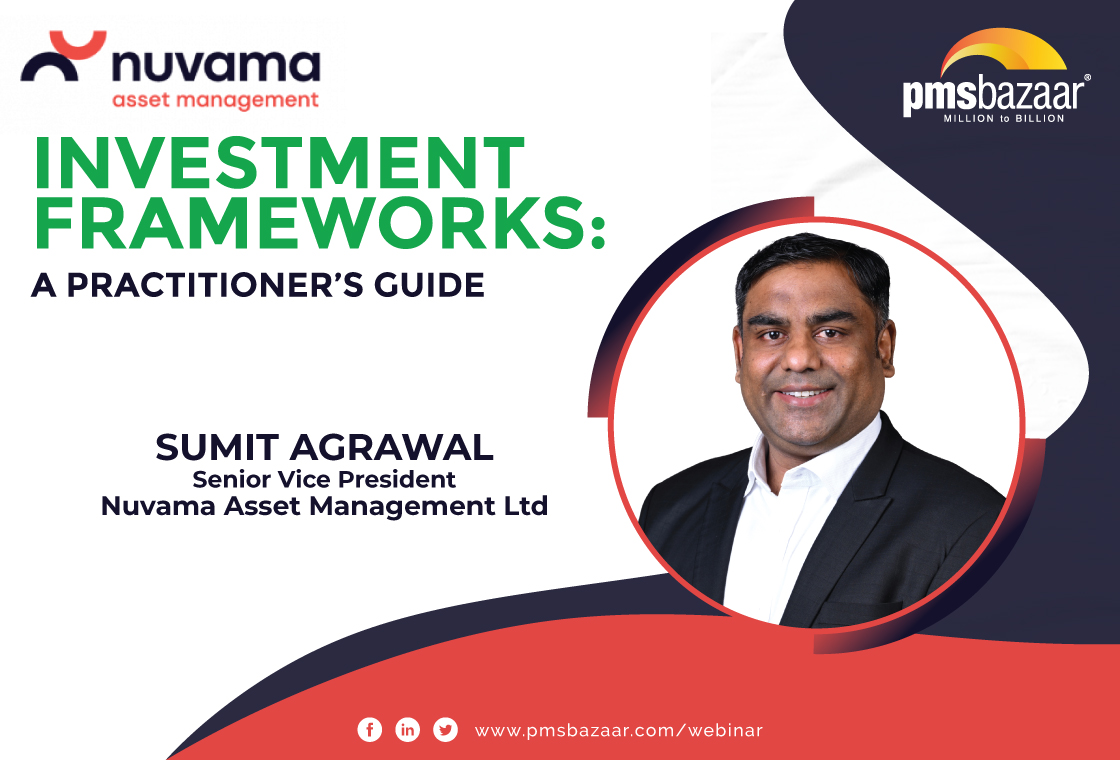
Investment Frameworks : A Practitioner’s Guide
PMS Bazaar recently organized a webinar titled “Investment Frameworks: A Practitioner’s Guide,” which featured Mr. Sumit Agrawal, Senior Vice President, Nuvama Asset Management Limited. This blog covers the important points shared in this insightful webinar.
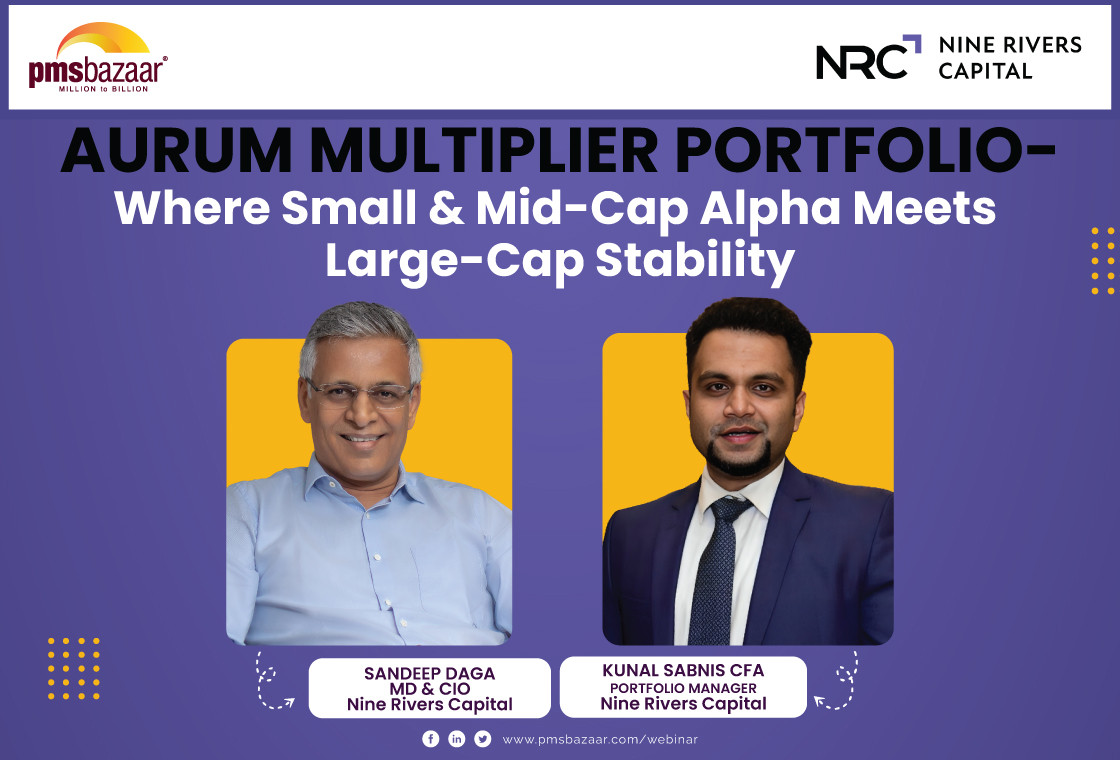
Aurum Multiplier Portfolio - Where Small and Mid-Cap Alpha Meets Large-Cap Stability
PMS Bazaar recently organized a webinar titled “Aurum Multiplier Portfolio - Where Small and Mid-Cap Alpha Meets Large-Cap Stability,” which featured Mr. Sandeep Daga, MD& CIO, Nine Rivers Capital and Mr. Kunal Sabnis, Portfolio Manager, Nine Rivers Capital. This blog covers the important points shared in this insightful webinar.
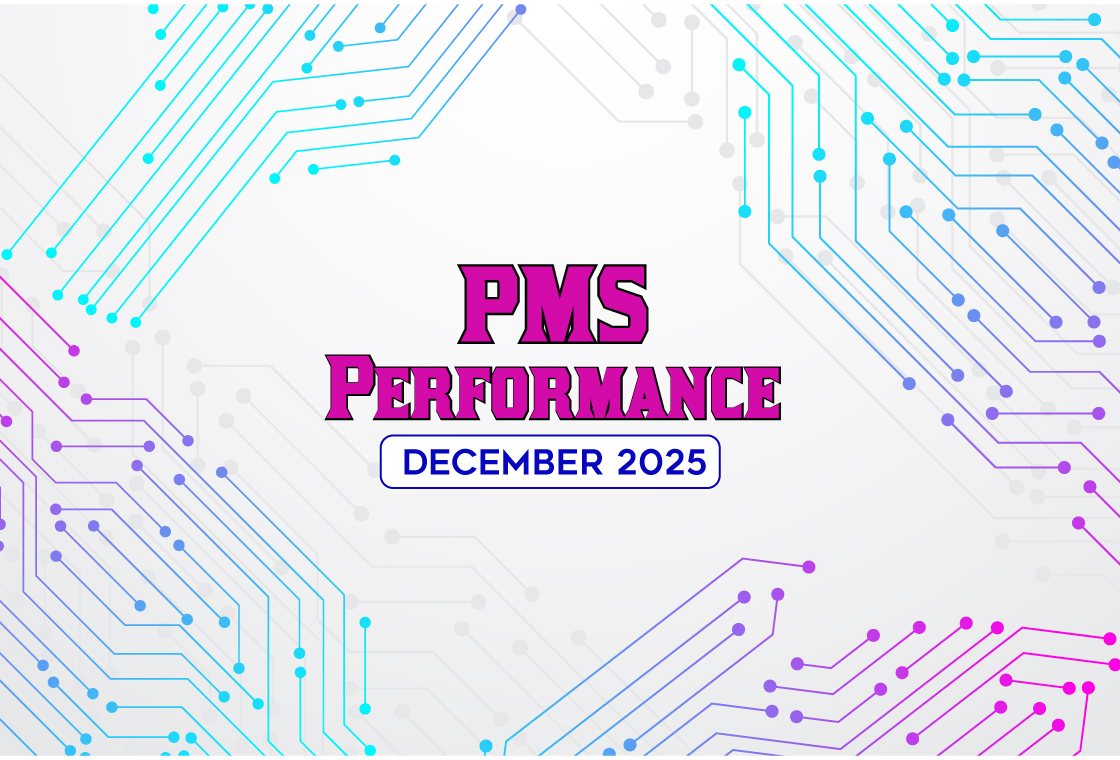
Flat Markets, Wide Outcomes: How 484 PMS Strategies Performed in Dec 2025
December 2025 was a month where market returns stayed close to flat, with the Nifty 50 TRI at -0.28% and the BSE 500 TRI at -0.24%.
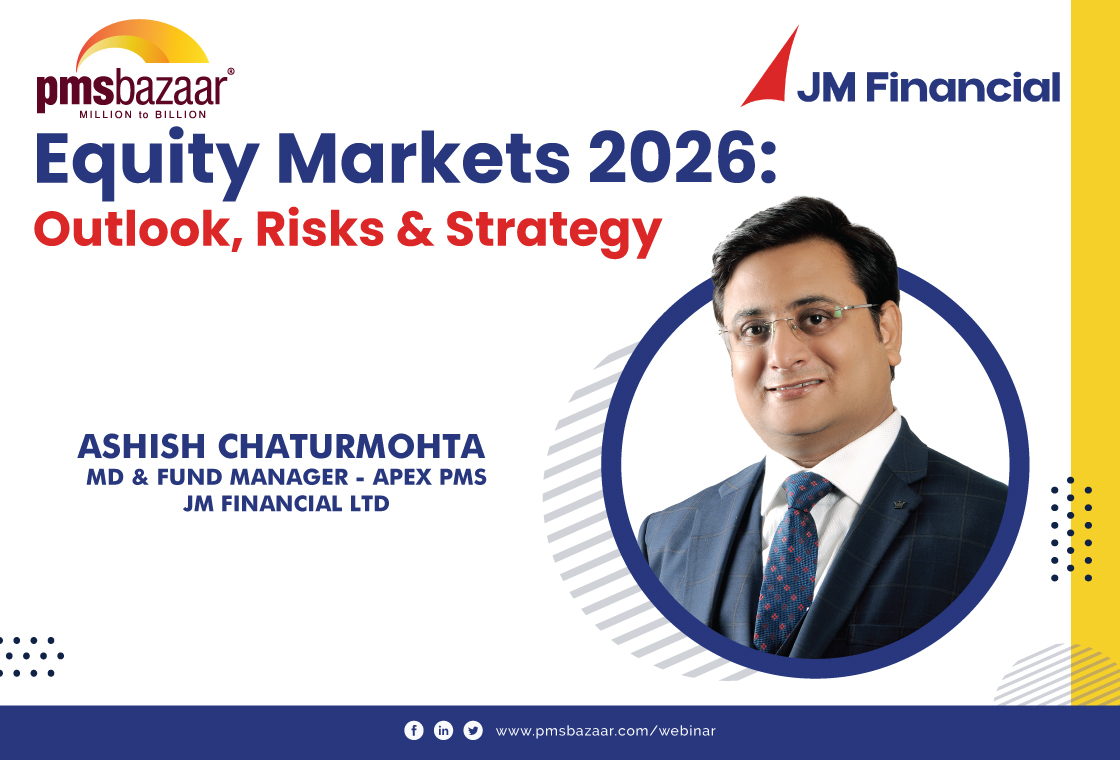
Equity Markets 2026: Outlook, Risks and Strategy
PMS Bazaar recently organized a webinar titled “Equity Markets 2026: Outlook, Risks and Strategy,” which featured Mr. Ashish Chaturmohta, MD & Fund Manager – APEX PMS, JM Financial Limited. This blog covers the important points shared in this insightful webinar.

MICRO CAPS: The Dark Horses of the Indian Equity Market
PMS Bazaar recently organized a webinar titled “MICRO CAPS: The Dark Horses of the Indian Equity Market,” which featured Mr. Rishi Agarwal and Mr. Adheesh Kabra, both Co-Founders and Fund Managers, Aarth AIF. This blog covers the important points shared in this insightful webinar.
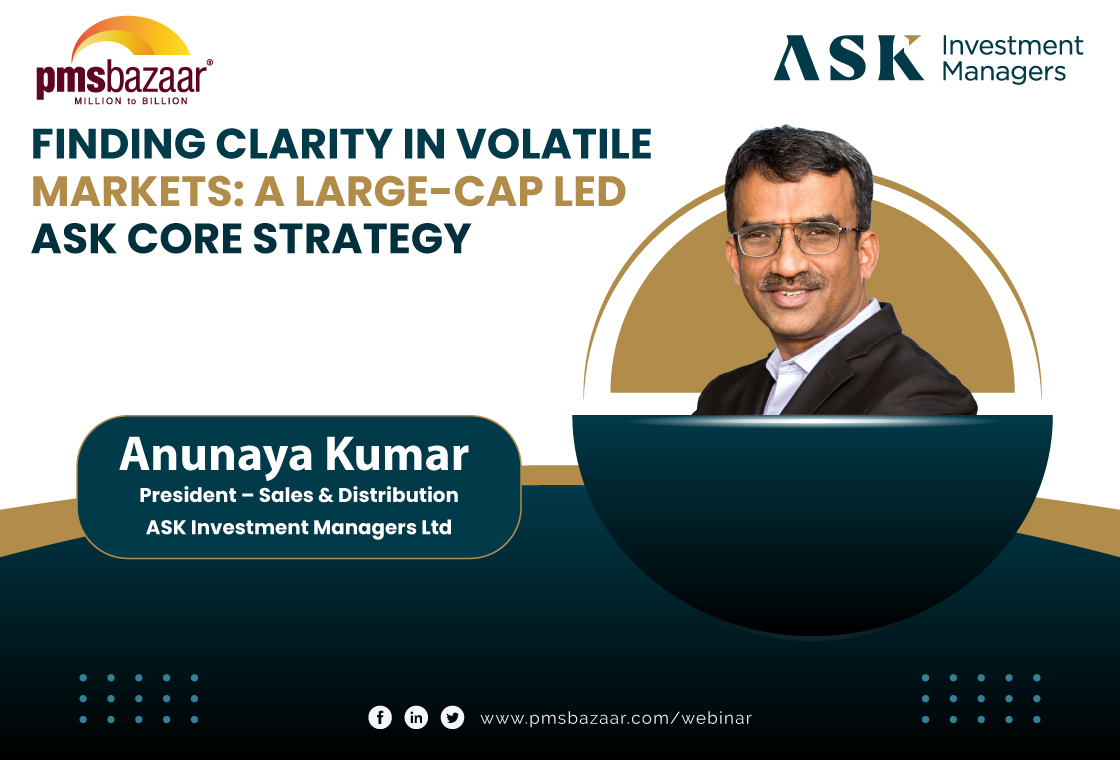
Finding Clarity in Volatile Markets: A Large-Cap Led ASK CORE Strategy
PMS Bazaar recently organized a webinar titled “Finding Clarity in Volatile Markets: A Large-Cap Led ASK CORE Strategy,” which featured Mr.Anunaya Kumar, President – Sales and Distribution ASK Investment Managers Limited. This blog covers the important points shared in this insightful webinar.
.jpg)
Passively Active Investing — A Modern Investor’s Lens on ETF-Based PMS
PMS Bazaar recently organized a webinar titled “Passively Active Investing — A Modern Investor’s Lens on ETF-Based PMS,” which featured Mr. Karan Bhatia, Co-Founder and Co-Fund Manager , Pricebridge Honeycomb ETF PMs. This blog covers the important points shared in this insightful webinar.

